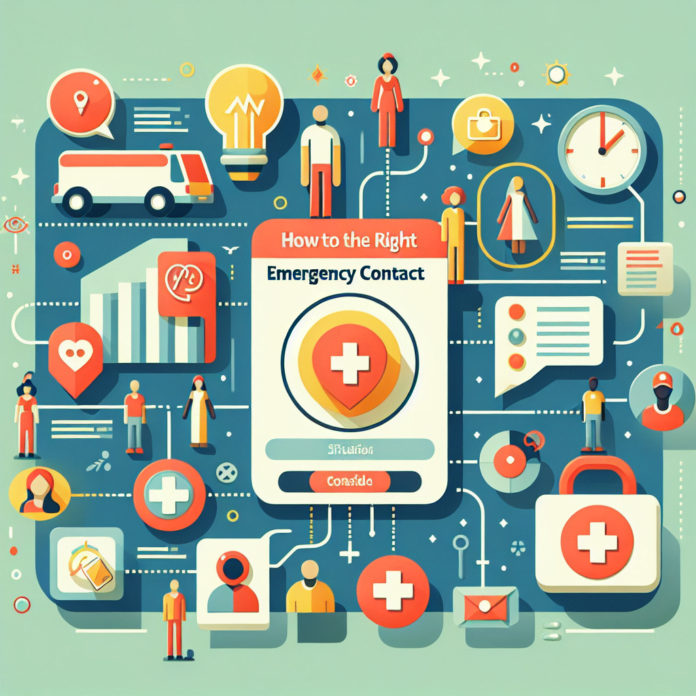Introduction
Emergency situations require swift actions and having the right contacts at your fingertips can make a significant difference. Choosing the right emergency contacts can be a daunting task, especially when considering the array of emergencies that can strike unexpectedly. To help you make an informed decision, this comprehensive guide provides insights on how to choose the appropriate emergency contacts for your particular situation.
Understanding the Importance of Emergency Contacts
Emergency contacts are more than just numbers saved on your phone – they can be the difference between life and death in a dire situation. They serve an essential role in alerting relevant responders or family members when you’re unable to communicate effectively or in a state of shock. Their relevance is further stipulated in the event of medical emergencies, where accurate information is crucial in providing the right form of treatment. Hence, the importance of choosing these contacts carefully cannot be overemphasized.
Who Should be Your Emergency Contacts?
Choosing the right contacts depends on a variety of factors such as your location, health status, your relationship with the potential contact, and their availability. Your best options are typically people who know you well such as family members, close friends, and care providers. These individuals should be reliable, quick to respond, aware of your medical history, if any, and preferably live close to you or your workplace.
Additionally, it is not advisable to rely on a single emergency contact. Instead, you should have a variety of options available that cover different kinds of emergencies. For example, having the number of a reliable local plumber can save you a lot of hassle if a pipe bursts in your home. Similarly, if you have a chronic condition, your doctor’s number can be a lifeline in certain situations.
What Information Should They Have?
Emergency contacts should have access to vital information that could help in an emergency. This can include your home address, workplace details, health insurance provider, blood type, and allergies, among other data. In addition to your personal information, your emergency contacts should also have a basic understanding of first aid and be aware of key actions to take in a crisis.
Updating Your Emergency Contacts
Over time, circumstances may change, leading to the need to update your list of emergency contacts. Regularly review your list to ensure it is up-to-date with relevant information, including telephone numbers and addresses. If a contact moves, changes jobs, or is no longer in a position to help, they should be replaced promptly.
Keeping Emergency Contacts Visible and Accessible
Emergency contacts are not much use if they cannot be found quickly during a crisis. Ensure that these numbers are saved at a location easy to remember and accessible. In case of unconsciousness, responders should be able to find this information without requiring your device’s passcode- emergency contact features on smartphones serve this purpose. Additionally, it can be helpful to have these contacts written down and stored in a safe, easily accessible place at home and in your vehicle.
Conclusion
Emergencies are unpredictable, but having a well-curated list of emergency contacts can help mitigate the havoc they can cause. The right emergency contacts are often those closest to you, those who are aware of your situation, and who can be relied upon to make good decisions in a crisis. With the correct preparation, you can have peace of mind knowing that you’re prepared for whatever emergency situation that may come your way.
Frequently Asked Questions
Q: Who can be an emergency contact?
A: An emergency contact can be anyone who is reliable, can respond quickly, and ideally, knows about your medical and personal needs. They can be family members, close friends, or care providers.
Q: How many emergency contacts should I have?
A: It’s advised to have at least two – one primary and one secondary. However, you should have as many contacts as necessary to cover all types of emergencies.
Q: Do emergency contacts need to live nearby?
A: Preferably, yes. In a crisis, you might need someone who can physically reach you quickly. But it’s also crucial to have contacts who can provide important information if they can’t physically be there.
Q: What if my emergency contacts’ situations change?
A: Keep your emergency contact list up-to-date. If your contacts’ situations change (e.g., they move, change jobs, etc.), you should find new ones promptly.

